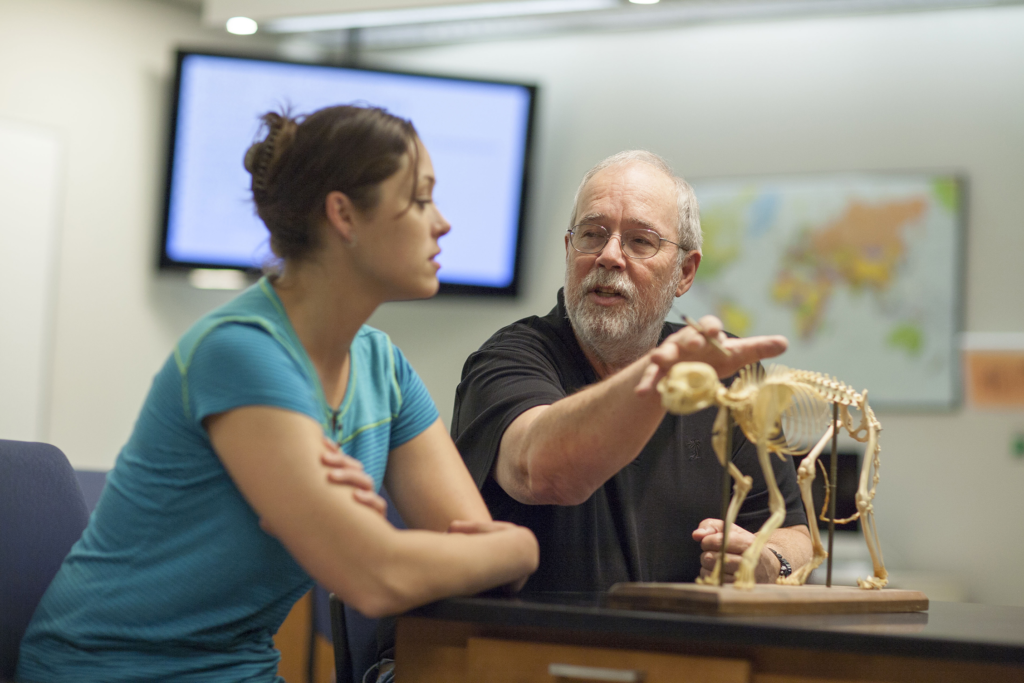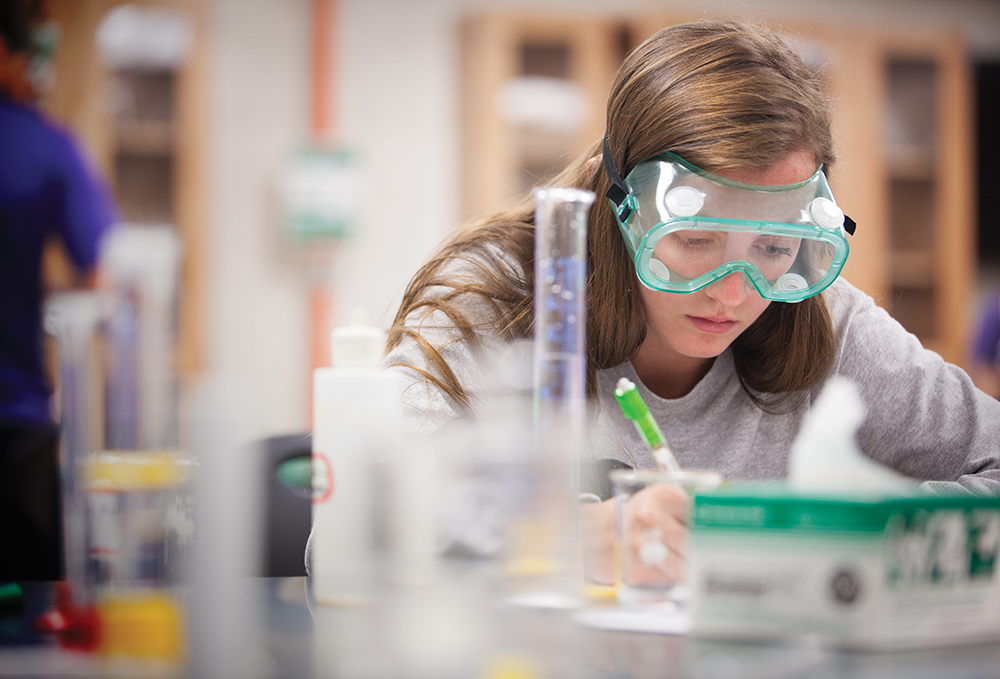Our mission is to prepare graduates for careers in the life sciences or related fields.

The Avila Bachelor’s degree program in biology can be taken with either a concentration in i) General Biology, ii) Pre-Veterinary Science, and iii) Ecology/Environmental Science.
Biology Major (B.S.)
The B.S. in Biology provides a broad foundation in the biological sciences, from microbiology to organismal biology to ecology and global systems. Through elective options, students tailor their degree to specific professional interests and goals, including but not limited to: medical research, healthcare, education, communications, wildlife management, conservation, public service, environmental law, and academic science. As part of their program of study, students complete an independent capstone research project under the direct guidance of biology faculty. Students of sufficiently high academic standing who wish to pursue competitive careers in academia, medicine, or industry are encouraged to consider the honors track (described below).
All students completing the biology major will meet the following learning outcomes:
- Acquire a foundation of knowledge that includes the historical development of biological thought, cell theory, biogenesis, homeostasis, gene theory, and ecology. Evolution is stressed throughout the curriculum.
- Learn biology by doing biology. Students will acquire a basic set of laboratory skills. Also, throughout the curriculum, students will be given opportunities to perform independent research projects. Majors will learn to access and critique the primary literature, identify problems, design and implement appropriate procedures using technological tools, work independently or collaboratively, evaluate alternative solutions, and present the results of their work while using the language of the discipline.
- Explain the limitations of science and properly place biology among the sciences. Apply scientific thought processes to broader intellectual and social issues.
The candidate for the Bachelor of Science degree in Biology must complete the Avila core requirements (minimum 41 credit hours) as well as the following courses:

Contact
Eiko Gilliford, Office Manager College of Science and Health
P: 816-501-3655 / E: eiko.gilliford
Biology Courses
| Course | Class | Credit |
|---|---|---|
| BI 111 | General Biology: Cells and Genes | 4 |
| BI 112 | General Biology: Ecology and Evolution | 4 |
| BI 311 | Animal Form, Function, and Development | 3 |
| BI 313 | Plant Form and Function | 3 |
| BI 318 | Genetics | 3 |
| BI 392 | Introduction to Research | 3 |
| BI 492 or BI 493 | Biology Literature Research OR Biology Lab Research | 1-3 |
| BI 499 | Colloquium and Seminar | 2-3 |
In addition to the above courses, students are required to take 16 hours of biology electives, with at least 9 of those hours at or above the 300 level.
Chemistry, Math, and Technology Requirements
| Course | Class | Credit |
|---|---|---|
| CH 135 | General Chemistry I | 4 |
| CH 137 | General Chemistry II | 4 |
| MA 120 or MA 125 or MA 241 | College Algebra OR Pre-Calculus OR Calculus | 3-5 |
| CS 110 or CS 210 | Ethics in Technology OR Navigating the Digital Society | 5 |
In addition to the above science requirements, biology majors are required to take at least two of the following Foundational Science Electives: MA 155, PH 117, PH 231, CH 216, CH 217. Students must earn a minimum of “C” for all required courses within the major.
Biology Major Total Credit Hours: 60 minimum
“As first-year medical students, we were very pleased to find that Avila’s biology program over prepared us for our first-year courses. With each new topic, we found that we were better prepared than our classmates and had a deeper understanding of the material from our undergraduate biology classes.”
Teresa and Jason Loden ’09
